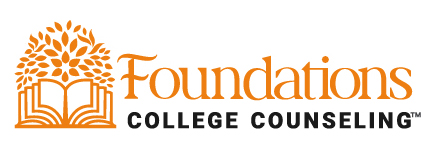It can be hard to wrap our minds around how quickly life can change, and how our best laid plans can unravel in front of us because of trauma, sickness, or even a bad decision. A parent dies, and the student’s grades, attitude, and mental health tank. A sibling gets cancer, and medical bills push the family into bankruptcy and uncharted waters of worry. An unhealthy relationship turns toxic and consumes the student’s energy. These examples only scratch the surface of the very real hurdles standing in the way for tons of kids and their families while life goes on around them.
So what do you do when something awful has happened and your college dreams are in jeopardy?
First, we think it’s really important to address some basic questions: Are you physically safe? Are you emotionally okay? (We cannot take these questions for granted with students and parents who have weathered a global pandemic, economic and social insecurity, and unprecedented stress over the past three years.) If you are not okay, if you are not safe, if you are considering or engaging in self-harm, please seek immediate help. In the United States, the 988 Suicide and Crisis Lifeline is open 24/7 (and online!) to listen and to connect you with ongoing support.
Next, we consider the realities of your situation. Are you still able to pursue your original plan, or does the plan need to pivot? For instance, for a student whose family has faced significant financial hardship, community college can be a more affordable way to work toward a degree. There is no shame in that game! Community colleges can be a great value. For a student recovering from trauma, a well-planned gap year could be well worth the time to heal. It’s another excellent choice that doesn’t subscribe to arbitrary American education norms and puts student mental health first.
The good news is that whenever you do apply, college admissions offices are sincere when they say they want to know about you as an applicant. Our whole job in college counseling is to help you frame yourself as a three-dimensional, quality applicant to colleges. The scars you carry with you are part of who you are and they can be discussed on most college applications with honesty, sensitivity, and appropriate vulnerability. We strongly recommend a second set of eyes on these kinds of writings, though, because getting the tone right is so very important.
If you’ve been through the wringer, we feel you! Try to remember there isn’t one direct path to success, success means different things to different people, and twenty years from now no one who matters will care what your road to higher education looked like.

